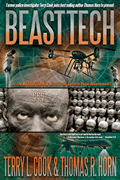FEDERALIST PAPER PREDICTS FEDERAL NEWSROOM MONITORS
By Mary E. Webster
March 4, 2014
NewsWithViews.com
"A bill of rights is not only unnecessary in the proposed Constitution, but would be dangerous."[1]
The insights contained in The Federalist Papers never cease to amaze me. It is the best psychology text I have ever read. They not only predict how societies evolve and behave, they explain why they evolve and behave in specific ways.
Amendment 1 seems perfectly clear: "Congress shall make no law…abridging the freedom of speech, or of the press…" Yet Federalist Paper #84 argues that some people will use this clause in the bill of rights to say that regulation of speech and the press is a federal responsibility. For example, on February 10, 2014, Ajit Pai wrote: "Last May the FCC proposed an initiative to thrust the federal government into newsrooms across the country. With its 'Multi-Market Study of Critical Information Needs,' or CIN, the agency plans to send researchers to grill reporters, editors and station owners about how they decide which stories to run. A field test in Columbia, S.C., is scheduled to begin this spring. The purpose of the CIN, according to the FCC, is to ferret out information from television and radio broadcasters about 'the process by which stories are selected' and how often stations cover 'critical information needs', along with 'perceived station bias' and 'perceived responsiveness to underserved populations'."[2]
The idea of putting federal monitors in media newsrooms is not new. From 1949 to 1987, the "fairness doctrine" was in effect. I worked for a radio station in San Francisco in the early '70s. Since we played music and had a tiny staff, we conformed to the "fairness doctrine" by never saying anything that might, in any way, be construed as political or controversial. I don't think that was the intention of the Founding Fathers when they promoted freedom of speech.
Amendment 1 clearly says, "Congress shall make no law…"; This phrase seems clear and direct, yet the federal government has imposed regulations on speech, religion, and the press. This is one of the predictions in The Federalist Papers that proved to me that the authors thoroughly understood human behavior. They predict how power seekers in the federal government would conclude they could try to control the press.
"A bill of rights is not only unnecessary in the proposed Constitution, but would be dangerous. It would contain exceptions to powers not granted. This would give the government a good pretext to claim more powers than were granted. Why declare that things shall not be done when there is no power to do it?
"For instance, why say that the liberty of the press shall not be restrained when no power is given to impose restrictions? Such a provision would not confer a regulating power. However, men who want to usurp power could use it to claim that power. They might argue with some logic—that it is absurd to say there is no authority when the Consttitution has a provision against the abuse of that authority. They could say that the provision against restraining the liberty of the press clearly implies that the national government has a power to regulate it."[3]
I am not saying that if there was no "bill of rights", the federal government would not try to regulate religion, speech, and the press. Power usurpation by the federal government is inevitable. In fact, I am glad that the "bill of rights" exists. Most people, including me before 1994, do not spend much time delving into the constitutionality of actions taken by the federal government. Before 1994, I intuitively knew that certain laws and regulations were bad or just counter-productive, but I wasn't able to make an argument as to why they were unconstitutional.
|
Now, when someone believes something like the "fairness doctrine" or having the FCC in newsrooms is a good idea, I can start my argument against these blatant usurpations of power with those five words: "Congress shall make no law." They can "yeah-but" me all day and, if I was a smart aleck, I could eventually say, "What part of 'NO LAW' don't you understand?" Of course, I don't. But I do, quietly, let them read Amendment 1 for themselves. And I let Providence work on their heart and mind.
© 2014 Mary E. Webster - All Rights Reserved
Footnotes:
1.
Federalist Paper #84 [paragraph 10], The Federalist Papers: Modern English
Edition Two.
2.
The
Wall Street Journal Opinion.
3.
Federalist Paper #84 [paragraph 10], The Federalist Papers: Modern English
Edition Two.
Mary E Webster, a graduate of St. Paul College and the University of Iowa, started studying The Federalist Papers in 1994. Her books, including a 10th-grade reading level translation of the Papers, The Federalist Papers: Modern English Edition Two, and The U.S. Constitution: Annotated with The Federalist Papers in Modern English make the timeless arguments within the Papers available to everyone. Webster is related to Noah and Daniel Webster and a direct descendent of several signers of the Mayflower Compact.
Website: Mary.Webster.org
Email: marywebster00@gmail.com













 Share
This Article
Share
This Article






